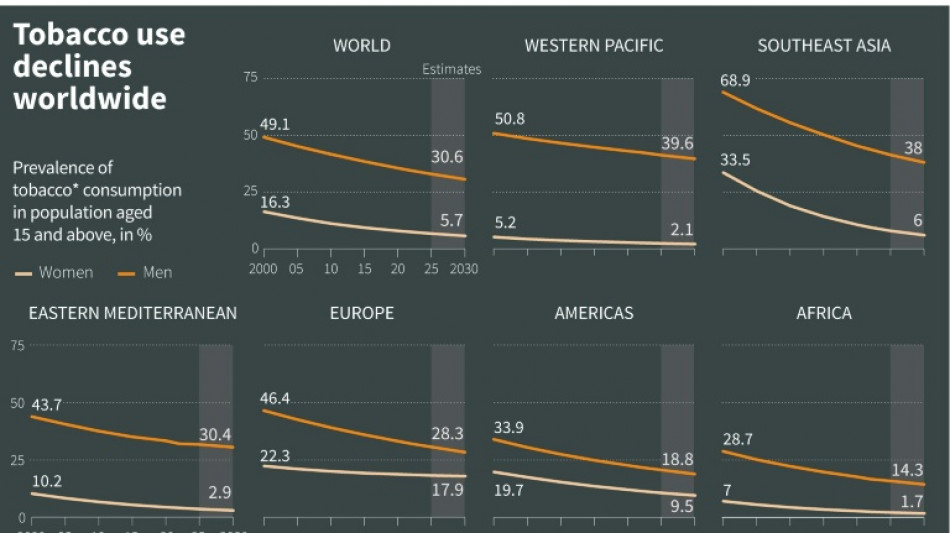

Panama to host anti-tobacco talks as industry courts new, younger smokers
A global anti-tobacco meeting opens in Panama on Monday to halt the harmful consequences of smoking, as tobacco companies endeavor to hook more users -- including children -- with addictive products.
Delegates from more than 180 countries will gather in Panama City for the biennial meeting, which will focus on tobacco advertising and sponsorship -- as well as new tobacco products, such as trendy electronic cigarettes.
The number of smokers around the world is steadily dropping, but the World Health Organization warned earlier this month that Big Tobacco was working hard to attract young people.
Tobacco use is estimated to kill more than eight million people each year, including an estimated 1.3 million non-smokers who are exposed to second-hand smoke, WHO statistics show.
The UN agency warned that while smoking rates are declining, it would take decades for the number of tobacco-related deaths to follow suit.
"Smoking causes a lot of damage and receives relatively little attention," because most of its impact is in the long term, whereas governments focus on the "day-to-day," Chile's former deputy health minister Ricardo Fabrega told AFP.
"Additionally, there is an industry with experts in inducing consumption at very early ages," added Fabrega, also the dean of the Santo Tomas University in Santiago.
The tenth meeting (COP10) of parties to the Framework Convention on Tobacco Control (FCTC) had been due in November 2023, but was postponed due to mass protests in Panama demanding the closure of a copper mine.
The tobacco control treaty came into force two decades ago.
- 'Criminal efforts' -
The main meeting will be followed by talks on the elimination of illegal tobacco products, which will be attended by around 70 countries.
The convention secretariat warned ahead of the meeting of a conflict of interest as "some parties have been approached by the tobacco and other industry representatives, to offer travel and technical support, including advisors."
According to the WHO, in 2022, about one in five adults around the world were smokers or consumed other tobacco products, compared to one in every three in 2000.
A fresh WHO report looking at trends in the prevalence of tobacco use between 2000 and 2030 showed that 150 countries were successfully reducing tobacco use through regulation, high taxes and other measures.
However, Ruediger Krech, director of the WHO's health promotion department, said earlier this month that the tobacco industry was using "criminal efforts" to undermine this progress and attract youngsters.
Concerns are growing over the risk of teens becoming hooked on nicotine through candy-colored disposable vapes, with flavors such as chocolate and bubblegum.
First seen as a way to stop smoking, e-cigarettes have themselves proven addictive, with some 82 million users in 2021, according to the US NGO Global State of Tobacco Harm Reduction.
The UK is seeking to ban disposable e-cigarettes, following a similar move from France. Germany and Belgium are also pursuing a ban.
H.Alejo--ESF




